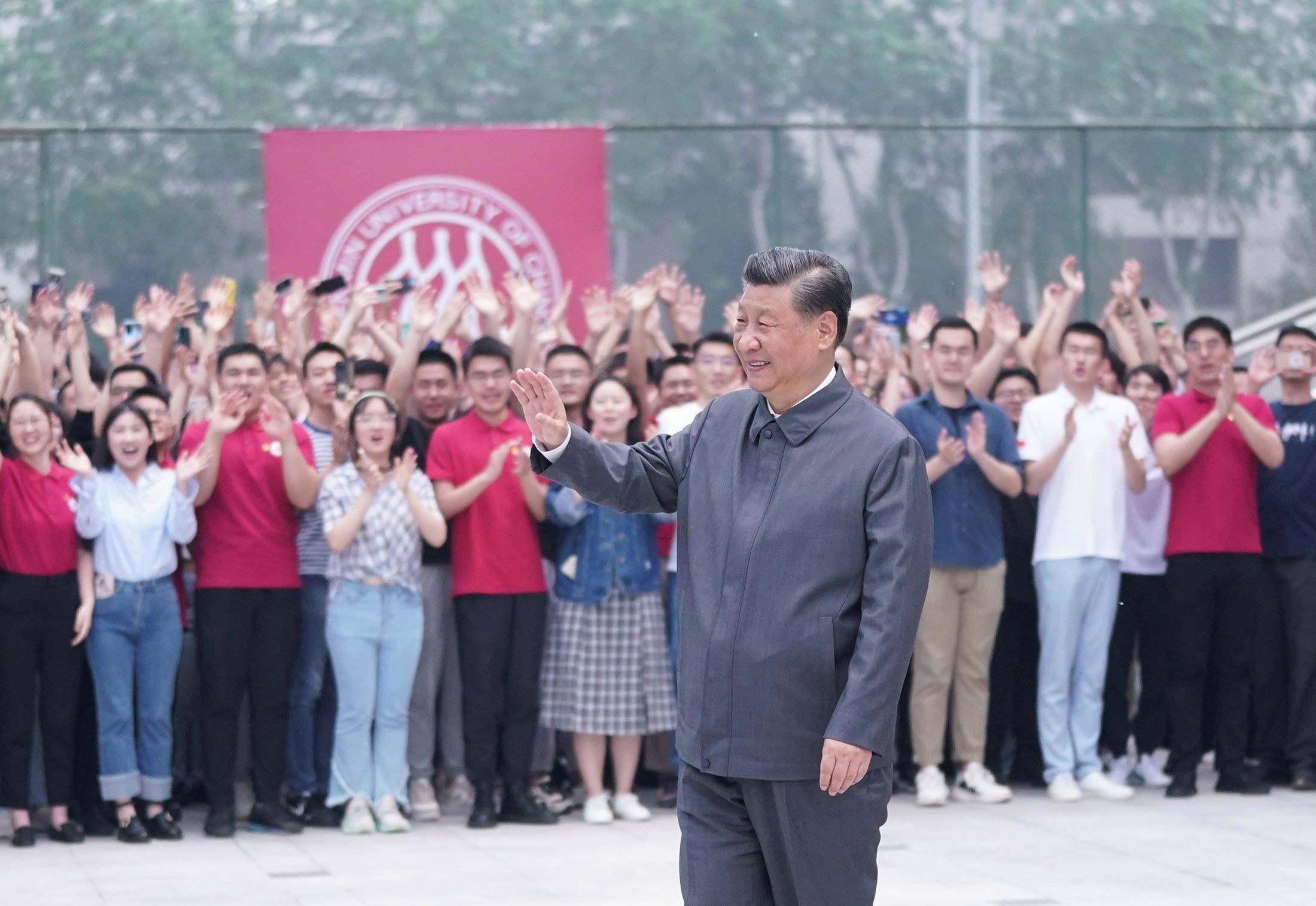Cheers greeted China President Xi Jinping as he toured Beijing’s Renmin University of China in April, telling students and teachers, "We must continue to promote the modernization of Marxism.” Social science research, he said, should have "Chinese characteristics” and contribute to "China’s independent knowledge system.”
It was a notable contrast to 11 years earlier, when Hu Jintao, Xi’s predecessor, visited the same campus, "listening carefully” to discussions on macroeconomics. That was in China’s boom years. The economy was growing faster than 10% a year, and private entrepreneurs in sectors such as real estate and technology operated with more autonomy than ever. Corruption and pollution were rampant. Karl Marx wasn’t mentioned.
Now, Xi was meeting with two "political economists” — Liu Wei, the university’s president, and Zhao Feng — who blend Marxism with elements of Western economics. The visit highlighted China’s pivot to funding and supporting researchers who are suspicious of the power of private business, with some advocating barring private capital from entire sectors. The message was clear: In today’s China, Marxism is back, and investors had better take note.


















With your current subscription plan you can comment on stories. However, before writing your first comment, please create a display name in the Profile section of your subscriber account page.